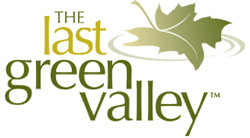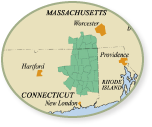Garden Thoughts and Seed Catalogs
“I have great faith in a seed. Convince me that you have a seed there, and I am prepared to expect wonders.” — Henry David Thoreau, from “The Dispersion of Seeds,” 1860-1861
One of the joys of winter is the arrival of seed catalogs in the mail. The colorful pictures of ripe vegetables speak of warmer days to come. As I flip through the pages, I usually pause at the tomatoes and count the days until I can walk in the garden, pick a sun-warmed ripe tomato and enjoy it sliced with a touch of salt.
My friend, Laura Moorehead, has an amazing vegetable garden. There are two reasons I know she grows fantastic vegetables: first, I have seen her beautiful garden; and second, I play a minor though helpful role in its success. Laura and her husband, Scott, stop by our place each spring for a truck load of composted horse manure. I like to think we, and our horses, play a role in creating their bountiful garden!
I contacted Laura to find out where she gets her seeds and was not surprised she uses two New England-based companies, Johnny’s Selected Seeds from Maine and the Maine Potato Lady, and another interesting source called Seed Savers Exchange. Laura said:
“Lots of people have asked me where I get my seeds. I love Johnny’s because their seeds are of the highest quality, and they are located in Maine, so I know they understand New England weather. Seed Savers Exchange is great because their focus is to find and preserve heirloom seeds, so when I buy from them I know I’m also supporting a good cause.
Even though gardening can be hard work and frustrating when the weather is bad or the bugs are at their worst, I love growing my own veggies because it’s so peaceful and exciting to go out in the garden each morning to see what has popped out of the ground or ripened on the vine. It’s also great exercise, and I know exactly what I’m eating when I harvest a ripe tomato or green bean. Today I was in the market and was reminded why I liked gardening when I picked up a small bunch of organic scallions and saw they cost $2. Yikes! When all that snow out there melts I know there will be fresh chives to snip for free!
I also get my seed garlic from Maine Potato Lady. I used to get it from Wayne’s Organic. I sure do miss him. Some of the vegetable varieties I grow because he used to grow them. I know he liked Johnny’s seeds too. He said to me once that he goes through the catalog looks for the descriptions that say that variety has the best flavor and that’s the one he bought. Not the pretty one or the big one, the one with the most flavor. Now I always look for that, too.”
I, too, miss Wayne Hansen, founder of Wayne’s Organic. Folks who frequent our region’s farmers markets will remember his excellent produce and warm personality. His farm was the first certified organic farm in eastern Connecticut and the second in the entire state. He passed away in 2019. I have also used Johnny’s Selected Seeds in the past and decided to order their catalog after Laura reminded me of them. Take it from Wayne and choose the variety with the best taste! Here is the Johnny’s Selected Seeds website: www.johnnyseeds.com
Laura’s mention of Seed Savers Exchange took me back to the early ’80s when I helped manage the historical agriculture and horticulture program at Old Sturbridge Village. We raised older varieties of vegetable in the museum’s gardens and Seed Savers Exchange was an important source of the “heirloom” types we were seeking. I was fortunate to meet the founders of the company, Diane Ott Whealy and Kent Whealy when they visited the museum. Diane’s grandfather had entrusted them with two garden seeds that had originated from seeds brought by her great grandparents when they immigrated to Iowa in 1884. Diane and Kent formed a nonprofit network of gardeners interested in preserving heirloom varieties and sharing seeds. Check out their website at: https://www.seedsavers.org/
I will admit to having a conflicted relationship with my vegetable garden. Nowadays I am just as inclined to get my fresh veggies from the farmer’s market or farm stand, but still want the experience and satisfaction of growing my own food. Over the years I raise fewer and fewer varieties – sticking with just a few plants of tomato, basil, eggplant and peppers, joined by a hill of summer and zucchini squash, a trellis of cucumbers, and a couple of rows of beans and beats.
Recently most of my vegetable garden space is for potatoes. For some reason, perhaps because they are easy to grow, my potato patch gets bigger and bigger. I also used Maine Potato Lady, but only for sweet potato slips. Growing sweet potatoes is lots of fun, but they grow from slips not from seeds (or seed potatoes) so they can be hard to find. In fact they are not really potatoes, and no, they are not yams either – but that’s for a different column. The Maine Potato Lady website is: www.mainepotatolady.com
I shop local as much as possible and get my seed potatoes from the Putnam Farmers Co-op. They sell in 5 pound minimums so I have plenty to grow. Last year it was Yukon Gold and Kennebec, my favorite New England variety. They keep well into the winter and we enjoy homegrown taters when last year’s vegetable garden is but a memory.
Another excellent source of seeds that are grown and sold right here in The Last Green Valley is Select Seeds in Union. They have been in operation for over 30 years and have a reputation for an exceptional variety and quality of seeds and plants. This spring I plan to expand my pollinator garden and create a wildflower meadow. I have already been perusing the Select Seed website for seeds to order. Their website is easy to navigate so if you like to purchase local, please check them out at: https://www.selectseeds.com/
At this writing the snow still covers most of the ground. I know under it all my garden is resting and waiting out these last weeks of winter, safe in the truth that spring will come. Like Henry David Thoreau, I too am prepared to expect wonders.
Bill Reid is the Chief Ranger of The Last Green Valley National Heritage Corridor. He has lived in and explored the region for 40 years and can be reached at bill@tlgv.org
Get Connected
Sign up for our newsletter
"*" indicates required fields



